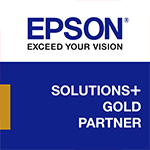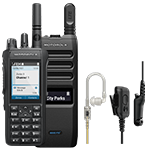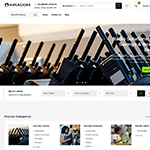Airacom Limited Environmental, Social and Governance (ESG) Policy: Terms and Conditions
Introduction
Airacom Limited is committed to conducting its business responsibly and sustainably, considering our operations’ environmental, social, and governance (ESG) implications. This policy outlines our core ESG principles and our commitment to continuous improvement.
1.0 Environmental
Airacom Limited acknowledges the responsibility we hold in minimising our environmental impact. We are committed to implementing effective strategies to reduce direct emissions generated by our facilities, contributing to a cleaner and healthier planet.
1.1 Climate Change:
At Airacom Limited, we recognise the urgency of climate action and take responsibility for minimising our greenhouse gas (GHG) emissions. We prioritise a science-based approach, aligning our emissions reduction goals with internationally recognised frameworks like SBTi or the Paris Agreement.
Aligning with the Science:
We actively engage with experts and institutions to ensure our GHG reduction targets are ambitious, measurable, and aligned with current climate science.
We commit to regularly reviewing and updating our targets, adapting them to the latest scientific findings and evolving best practices.
We implement effective strategies to reduce GHG emissions across all our operations, encompassing buildings, equipment, transportation, and supply chains.
We actively engage employees, partners, and stakeholders in our climate action journey, fostering collaboration and collective impact.
1.1.2 Implement energy efficiency measures and utilise renewable energy sources.
Airacom Limited implements a comprehensive energy efficiency program across all operations, encompassing buildings, equipment, and transportation. This program will include:
(a) Building retrofits with energy-efficient lighting and appliances.
(b) Upgrade equipment to newer, more efficient models.
(c) Optimising transportation routes and logistics to reduce fuel consumption.
(d) Setting clear energy savings targets and tracking progress towards them.
Airacom Limited commits to increasing its reliance on renewable energy sources for electricity and other forms of energy. This will involve:
(e) Purchasing renewable energy certificates or investing in on-site renewable energy generation (e.g., solar panels).
(f) The company will continuously explore opportunities to increase renewable energy reliance further and diversify its energy sources.
1.1.3 Encourage suppliers to adopt similar environmental practices.
(a) Supplier Selection and Onboarding:
Sustainability criteria: Integrate environmental considerations into supplier selection processes, prioritising vendors with strong sustainability practices and commitments aligned with Airacom’s goals.
Onboarding education: During onboarding, provide suppliers with information about Airacom’s environmental policies, expectations, and available resources to support their adoption of similar practices.
(b) Collaboration and Support:
Joint initiatives: Develop and implement joint sustainability initiatives with key suppliers, including pilot projects, knowledge-sharing workshops, and collaborative goal setting.
Technical assistance: Offer technical assistance and resources to suppliers, such as energy audits, efficiency assessments, and access to sustainability experts, to help them implement effective environmental initiatives.
Best practices sharing: Regularly share best practices and success stories with suppliers to inspire and encourage them in their sustainability journey.
(c) Incentives and Recognition:
Supplier sustainability scorecard: Develop a transparent scorecard system to assess and benchmark suppliers based on their environmental performance.
Incentive programs: Offer preferential terms, contract renewals, or financial incentives to suppliers demonstrating sustained progress in adopting sustainable practices.
Public recognition: Publicly acknowledge and recognise suppliers who are leaders in environmental performance, highlighting their achievements and contributions.
(d) Monitoring and Evaluation:
Track supplier progress: Monitor and track suppliers’ progress in implementing agreed-upon environmental initiatives and achieving set targets.
Performance audits: Conduct regular audits or sustainability assessments of key suppliers to evaluate their compliance with Airacom’s expectations and identify areas for improvement.
Feedback and transparency: Maintain open communication with suppliers, providing feedback on their performance and opportunities for improvement while sharing progress and challenges related to collective environmental goals.
(e) Continuous Improvement:
Review and update: Regularly review and update Airacom’s supplier engagement strategy to reflect best practices, evolving industry standards, and stakeholder expectations.
Partnerships and collaboration: Actively participate in industry collaborations and partnerships that promote sustainable supply chains and collective environmental action.
By implementing these terms, Airacom Limited can effectively encourage and support its suppliers in adopting similar environmental practices, contributing to a broader positive impact throughout its value chain.
1.1.4 Regularly report on progress towards emissions reduction targets.
(a) Reporting Frequency and Format:
Airacom Limited will publish a transparent and comprehensive sustainability report detailing progress towards emissions reduction targets annually within six months of the fiscal year-end.
The report will be publicly available on the company website and accessible in digital and print formats.
Airacom will also consider additional communication channels like press releases, presentations, and social media to communicate key progress highlights to stakeholders.
(b) Content and Transparency:
The report will clearly outline the specific emissions reduction targets set for direct, indirect, and supply chain emissions (as defined in 1.1.1).
It will present data on actual emissions and progress towards each target, using clear metrics and visualisations for easy understanding.
The report will address any challenges encountered and explain any deviations from set targets, along with mitigation strategies implemented.
Airacom will ensure the report adheres to recognised reporting standards and frameworks (e.g., GRI, CDP) for enhanced comparability and credibility.
(c) Stakeholder Engagement:
Airacom will actively engage with stakeholders in discussions about its climate change goals and progress. This may involve:
Hosting webinars and Q&A sessions to answer questions and address concerns.
Participating in industry forums and conferences to share best practices and learn from others.
Engaging with investors and analysts to discuss the financial implications of climate change initiatives.
Collaborating with NGOs and community organisations to raise awareness and drive collective action.
(d) Continuous Improvement:
Airacom will use the reporting process as an opportunity for continuous improvement and accountability. This will involve:
Regularly reviewing and updating the reporting methodology and metrics to ensure they remain relevant and impactful.
Seeking feedback from stakeholders on the comprehensiveness and clarity of the reporting.
Setting increasingly ambitious emissions reduction targets based on scientific evidence and best practices.
Demonstrating transparency and responsiveness to stakeholder concerns and suggestions.
1.2 Resource Management:
Airacom Limited is committed to using resources wisely and minimising our environmental footprint. We implement comprehensive strategies across water conservation, energy efficiency, waste reduction and recycling, responsible materials sourcing, and single-use plastic minimisation. Setting ambitious targets and embracing innovative solutions, we strive to reduce our resource consumption, increase our recycling rates, and prioritise sustainable materials throughout our operations while collaborating with suppliers and engaging stakeholders to promote a circular economy and build a more resource-efficient future.
1.2.1 Implement water, energy, and waste management efficiency measures.
(a) Water Conservation:
Airacom Limited recognises water’s critical role in our ecosystem and the vital need for responsible water management. We are committed to reducing water consumption significantly and ensuring its use sustainably and efficiently.
Implementation Strategies: Install water-efficient fixtures and appliances. Fix leaks promptly and implement preventative maintenance programs. Promote water conservation awareness among employees through training and campaigns. Implement rainwater harvesting systems if feasible.
Monitoring and Reporting: Track water usage through meters and regularly report progress towards targets. Highlight successful water conservation initiatives and lessons learned.
(b) Waste Reduction and Recycling:
Airacom Limited recognises the importance of minimising waste and maximising resource recovery. We are committed to implementing and exceeding the best waste reduction and recycling practices, driving a circular economy, and minimising our environmental footprint.
Implementation Strategies: Minimise packaging waste through product design and procurement practices. Reduce unnecessary printing and paper consumption. Implement composting programs for food waste and organic materials. Set up labelled recycling bins for different materials and provide employee training on proper recycling practices. Explore opportunities for waste-to-energy or other innovative waste management solutions.
Monitoring and Reporting: Track waste generation and recycling rates, reporting progress towards targets. Highlight successful waste reduction and recycling initiatives and showcase responsible product packaging practices.
1.2.2 Promote the use of recycled and recyclable materials.
Responsible Materials Sourcing:
(a) Sourcing Criteria: Prioritise purchasing materials from suppliers with strong sustainability practices and recycled content whenever possible. Implement lifecycle assessments to identify materials with lower environmental impact and prioritise their use.
(b) Transparency and Collaboration: Work with suppliers to improve sustainability practices and encourage them to source responsibly. Consider developing joint initiatives or supplier sustainability programs.
(c) Reporting and Disclosure: Publicly disclose information about the percentage of recycled content in products and packaging, as well as the sustainability practices of key suppliers.
1.2.3 Minimise reliance on single-use plastics and disposable materials.
Minimising Single-Use Plastics:
(a) Elimination or Phase-Out: Set a clear goal and timeline for eliminating or significantly reducing single-use plastics throughout operations. This could include plastic straws, cups, water bottles, packaging materials, etc.
(b) Alternatives and Innovations: Provide reusable alternatives to single-use plastics for employees and customers. Explore innovative packaging solutions and bioplastics as potential replacements.
(c) Education and Awareness: Raise awareness among employees and customers about the environmental impact of single-use plastics and encourage responsible consumption habits.
1.3 Pollution Prevention:
Airacom Limited recognises our critical role in protecting our environment from pollution. We are committed to exceeding regulatory requirements and implementing robust measures to prevent air, water, and land contamination across all our operations.
(a) Minimising Environmental Impact:
Compliance and Proactive Improvement: We adhere to all applicable environmental regulations and actively seek opportunities to exceed them, constantly striving for environmental excellence.
Pollution Control Measures: We invest in state-of-the-art technologies and best practices to control potential sources of pollution, including air filters, wastewater treatment systems, and proper hazardous materials management.
Minimising Emissions: We continuously track and monitor emissions from all sources, implementing strategies to reduce air and water pollution. This includes optimising processes, minimising waste generation, and utilising cleaner fuels when feasible.
Responsible Waste Management: We implement a comprehensive waste management system prioritising reduction, reuse, and recycling. We also ensure safe and responsible disposal of any remaining waste, minimising its environmental impact.
(b) Continuous Improvement:
Regular Audits and Reviews: We conduct regular internal and external audits of our environmental practices to identify areas for improvement and ensure ongoing compliance with regulations and best practices.
Collaboration and Partnerships: We collaborate with government agencies, NGOs, and industry partners to share best practices, participate in environmental initiatives, and contribute to collective efforts towards environmental protection.
1.3.1 Comply with all applicable environmental regulations and strive for continuous improvement.
At Airacom Limited, we understand that adhering to environmental regulations is the foundation for responsible operations.
Committed Compliance:
We prioritise staying informed about and fully complying with all applicable environmental regulations at local, national, and international levels.
Going Beyond Compliance:
We believe compliance is just the starting point. Our commitment extends to continuous improvement, surpassing regulatory requirements to minimise our environmental footprint.
We actively seek stakeholder feedback and engage in open dialogue to identify areas for improvement and enhance our environmental performance.
Transparency and Accountability:
We maintain transparent communication regarding our environmental compliance and continuous improvement efforts.
We welcome audits and assessments from qualified external bodies to ensure independent verification of our environmental performance.
2.0 Social
Airacom Limited believes in the power of our people and communities. We are committed to fostering a positive and inclusive workplace, upholding ethical and responsible business practices, and contributing to the well-being of our communities. This commitment is woven into everything we do, from building a diverse and vibrant workforce to investing in local initiatives and promoting sustainable practices throughout our supply chain.
(a) Employee Well-being and Engagement: We prioritise the physical and mental well-being of our employees, offering competitive benefits packages, promoting work-life balance, and fostering a culture of inclusion and respect. We invest in employee training and development, empowering them to reach their full potential and contribute meaningfully to our success.
(b) Diversity and Inclusion: We embrace diversity and strive to create a workplace where everyone feels valued and has the opportunity to thrive. We actively recruit from diverse talent pools, implement inclusive hiring practices, and combat discrimination within our organisation.
(c) Responsible Labor Practices: We uphold the highest ethical standards in our employment practices, ensuring fair compensation, safe working conditions, and respect for human rights throughout our operations and supply chain.
2.1 Employee Wellbeing:
At Airacom Limited, we recognise that our employees are our most valuable asset. Fostering their physical and mental well-being is not just an ethical responsibility, but it also drives engagement, productivity, and the overall success of our company. Our employee well-being program is built on four key pillars:
Health and Safety:
Safe Working Environment: We prioritise employee safety by implementing stringent safety protocols, conducting regular risk assessments, and providing comprehensive safety training programs.
Physical and Mental Health Initiatives: We offer access to health insurance, wellness programs, and employee assistance programs to promote physical and mental well-being. This includes initiatives like fitness challenges, stress management workshops, and confidential counselling services.
Work-Life Balance: We recognise the importance of work-life balance and offer flexible work arrangements, generous leave policies, and employee resource groups to support our employees in managing their personal and professional commitments.
Development and Growth:
Learning and Development: We invest in employee training and development programs, providing opportunities for upskilling, reskilling, and personal growth. This includes professional development workshops, leadership training programs, and tuition assistance programs.
Career Advancement: We provide clear career paths and opportunities for internal mobility, encouraging employees to grow and advance within the company.
Performance Recognition and Rewards: We celebrate employee achievements and contributions through a robust performance management system, recognition programs, and competitive compensation packages.
Diversity and Inclusion:
Inclusive Work Environment: We foster a culture of inclusivity and respect where everyone feels valued and heard. We champion diversity in our workforce and prohibit discrimination based on race, gender, religion, ability, or any other personal characteristic.
Unconscious Bias Training: We provide unconscious bias training to employees and managers to raise awareness and promote fair and equitable treatment in all aspects of our work.
Employee Resource Groups (ERGs): We support the formation and activities of ERGs that empower employees to connect, share experiences, and advance the interests of diverse groups within our workforce.
Employee Engagement and Communication:
Open Communication: We maintain open and transparent communication channels with our employees, encouraging feedback, dialogue, and collaboration. This includes regular town halls, employee surveys, and open-door policies.
Employee Engagement Activities: We organise social events, team-building exercises, and employee appreciation initiatives to foster community, belonging, and engagement within our workforce.
Employee Recognition and Feedback: We regularly recognise employee achievements and contributions and actively seek and value feedback to continuously improve our work environment and initiatives.
2.1.1 Provide a safe and healthy working environment for all employees.
At Airacom Limited, the safety and health of our employees is paramount. We are committed to providing a work environment free from hazards, promoting physical and mental well-being, and complying with all applicable safety regulations and best practices.
Key Commitments:
Hazard Prevention and Control: We proactively identify and mitigate potential hazards through regular risk assessments, comprehensive safety protocols, and preventive maintenance programs.
Safe Work Practices: We provide mandatory safety training for all employees, covering emergency procedures, fire safety, manual handling, and specific job-related risks.
Personal Protective Equipment (PPE): We readily provide and ensure proper use of appropriate PPE for all required tasks, prioritising employee safety in all situations.
Incident Reporting and Investigation: We encourage open communication regarding all potential hazards and incidents, with robust reporting systems and thorough investigations to address any concerns promptly and effectively.
Ergonomic Assessments and Workplace Design: We prioritise good ergonomics through workstation assessments, adjustable furniture, and proper equipment configurations to reduce physical strain and discomfort.
Mental Health Awareness and Support: We recognise the importance of mental well-being and strive to foster a supportive environment. We offer access to employee assistance programs, mental health awareness initiatives, and confidential counselling services to ensure support for all employees.
Continuous Improvement:
We regularly review and update our safety and health policies and procedures by evolving regulations and best practices.
We conduct routine safety audits and inspections to identify and address potential issues before they pose a risk.
We actively solicit employee feedback through safety committees, surveys, and open communication channels to improve our safety culture and prevent incidents.
We invest in safety training and awareness programs to empower employees to identify and report hazards, participate in safety drills, and prioritise their health and well-being.
Transparency and Accountability:
We maintain transparent communication regarding our safety performance and initiatives, ensuring all employees are informed and engaged in our ongoing efforts.
We regularly report on safety metrics and progress in reducing incidents and injuries to demonstrate our commitment to continuous improvement.
We hold ourselves accountable for providing a safe and healthy work environment and actively welcome feedback and suggestions from all stakeholders.
2.1.2 Offer competitive compensation and benefits packages.
Airacom Limited recognises the significant role compensation and benefits play in attracting, retaining, and motivating top talent. We are committed to offering competitive packages that recognise employee contributions, promote financial security, and support their overall well-being.
(a) Compensation Philosophy:
We base compensation on individual performance, expertise, and market competitiveness to ensure fair and rewarding packages for all employees.
We utilise regular performance reviews and evaluations to ensure compensation remains aligned with employee contributions and market trends.
We provide career advancement and skill development opportunities, allowing employees to increase their value and compensation over time.
(b) Benefits Package Highlights:
We offer a comprehensive benefits package encompassing health insurance, dental and vision insurance, retirement savings plans with company-matching contributions, and paid time off for vacation, sick leave, and personal days.
We recognise the importance of work-life balance and offer additional benefits like flexible work arrangements, childcare assistance programs, and employee wellness initiatives to support our employees in managing their personal and professional commitments.
We continuously evaluate and adapt our benefits package to meet the evolving needs of our employees and stay competitive within the industry.
(c) Transparency and Communication:
We maintain open communication regarding our compensation and benefits policies, ensuring all employees understand their options and eligibility.
We regularly gather employee feedback through surveys and open discussions to ensure our benefits package remains relevant and meets their needs.
We actively welcome suggestions and ideas for improvements, demonstrating our commitment to providing a competitive and attractive total compensation package for all our employees.
2.1.3 Promote diversity and inclusion within the workforce.
At Airacom Limited, we believe that diversity is not just a statistic but a source of strength and innovation. We are committed to fostering a workplace where everyone feels valued, respected, and empowered to contribute their unique talents and perspectives.
(a) Building a Diverse Workforce:
Inclusive Recruitment Practices: We actively utilise recruitment strategies that reach diverse talent pools, minimising unconscious bias throughout the hiring process. This includes partnering with diverse organisations, utilising inclusive job descriptions, and implementing blind resume reviews.
Talent Development and Advancement: We provide equal opportunities for career growth and development for all employees, regardless of their background or identity. This includes mentorship programs, leadership training initiatives, and internal job posting opportunities prioritising a diverse talent pool.
Celebrating Differences: We value and celebrate our employees’ diverse experiences and perspectives through cultural events, employee resource groups (ERGs), and initiatives that promote cross-cultural understanding and appreciation.
(b) Fostering an Inclusive Culture:
Zero Tolerance for Discrimination: We maintain a strict zero-tolerance policy for discrimination or harassment based on race, gender, religion, sexual orientation, disability, or other personal characteristics. We provide clear reporting channels and ensure swift and fair action against violations.
Inclusive Work Environment: We create a work environment where everyone feels safe, heard, and empowered to express their ideas and opinions. This includes open communication channels, regular feedback mechanisms, and training programs on unconscious bias and inclusive leadership.
Employee Resource Groups (ERGs): We support the formation and activities of ERGs that empower employees from diverse backgrounds to connect, share experiences, and advocate for their communities within the company.
(c) Continuous Improvement:
Diversity and Inclusion Metrics: We track and measure our progress on diversity and inclusion through workforce demographics, representation in leadership positions, and employee satisfaction surveys. This allows us to identify areas for improvement and ensure we are making tangible progress.
Regular Learning and Dialogue: We actively engage in ongoing learning and dialogue about diversity and inclusion through training programs, workshops, and guest speaker sessions. This fosters a culture of continuous learning and keeps us accountable for maintaining an inclusive environment.
Transparency and Partnership: We maintain open communication regarding our diversity and inclusion efforts, sharing our goals, progress, and challenges with all stakeholders. We also actively seek feedback and collaborate with external organisations and partners to learn from best practices and accelerate our progress.
2.1.4 Provide opportunities for professional development and training.
(a) Comprehensive Training Programs: We offer a diverse range of training programs spanning technical skills, leadership development, communication, and industry-specific knowledge. These programs are delivered through various formats, including in-person workshops, online courses, mentoring programs, and external conferences.
(b) Personalised Learning Opportunities: We take an individual approach to development, identifying each employee’s strengths, aspirations, and career goals. Based on this evaluation, we curate personalised learning plans that ensure the training they receive is directly relevant and impactful for their career trajectory.
(c) On-the-Job Learning: We encourage and facilitate on-the-job learning experiences through project assignments, cross-functional collaborations, and shadowing opportunities. This allows employees to gain practical experience, apply their skills in real-world scenarios, and learn from experienced colleagues.
(d) Tuition Assistance Programs: We recognise the value of continued education and offer tuition assistance programs to support employees seeking professional certifications, advanced degrees, or other relevant educational pursuits.
(e) Skills Development Initiatives: We actively invest in initiatives that enhance the overall skillset of our workforce. This includes subscriptions to online learning platforms, access to industry publications and resources, and opportunities to attend industry events and conferences.
(f) Internal Knowledge Sharing: We foster a knowledge-sharing culture within our organisation through internal speaker sessions, peer-to-peer mentoring programs, and knowledge management platforms. This allows employees to learn from each other’s expertise and build a collective pool of knowledge within the company.
(g) Regular Feedback and Evaluation: We regularly solicit employee feedback on the effectiveness of our training programs and identify improvement areas. We also conduct evaluations to assess the impact of our learning initiatives on individual and organisational performance.
(h) Adapting to Changing Needs: We stay updated on industry trends and emerging skills needs, continuously adapting our training programs and learning opportunities to ensure they remain relevant and meet the evolving requirements of our employees and the business.
(i) Celebrating Achievements: We recognise and celebrate employee achievements and milestones in their professional development journeys. This fosters a sense of accomplishment and motivates individuals to pursue their learning goals.
2.2 Community Engagement:
At Airacom Limited, we recognise that our success is intertwined with the well-being of the communities where we operate. We are committed to being a responsible corporate citizen, fostering positive relationships with local communities, and making a meaningful contribution to their social and environmental development.
Local Focus: We tailor our community engagement efforts to each community’s needs and priorities, building strong relationships with local stakeholders and organisations.
Collaboration and Partnership: We actively collaborate with local businesses, non-profit organisations, and government agencies to leverage our collective resources and expertise for greater impact.
Sustainable Impact: We focus on initiatives that deliver lasting benefits to communities, addressing social and environmental challenges through long-term projects and programs.
Employee Engagement: We encourage and empower our employees to actively participate in community engagement initiatives actively, fostering a sense of ownership and connection with the communities they live and work in.
Education and Skills Development: We support education initiatives, including scholarships, STEM programs, and career development workshops, to empower the next generation and contribute to building a skilled workforce in the communities we serve.
Environmental Sustainability: We engage in environmental initiatives like conservation projects, clean-up drives, and community education programs to promote environmental awareness and protect the local ecosystems.
Social Wellbeing and Inclusivity: We support initiatives that address social challenges like poverty, healthcare access, and food insecurity, promoting inclusivity and fostering a strong sense of community.
Cultural and Artistic Development: We sponsor cultural events and support local artists and sporting and charity-led organisations.
Impact Assessment: We regularly evaluate the effectiveness of our community engagement initiatives to ensure they are making a measurable and positive impact on the communities we serve.
Transparency and Communication: We maintain open communication channels with our stakeholders, sharing information about our community engagement efforts, progress, and results.
Employee Recognition: We recognise and celebrate the contributions of our employees in community engagement initiatives, acknowledging their dedication and fostering a culture of social responsibility.
2.2.1 Support local communities through financial and volunteer contributions.
We understand that empowering local communities requires multifaceted commitment. Beyond financial contributions and employee volunteerism, we strive to equip residents with the tools and resources they need to thrive. Our community engagement framework prioritises financial support, technical assistance, and access to critical communications equipment.
(a) Matching Employee Donations: We match employee donations to amplify their generosity further and encourage active participation in supporting local causes they care about.
(b) Matching Employee Donations: We match employee donations to amplify their generosity further and encourage active participation in supporting local causes they care about.
(c) Volunteer Engagement Initiatives: We organise and support volunteer events where employees can dedicate their time and skills to community projects, fostering team spirit and a sense of social responsibility.
(d) Skills Development Workshops: We conduct training programs focused on digital literacy, technology skills, and cyber awareness, empowering individuals to navigate the digital world confidently and access opportunities.
(e) Technical Resources and Support: We offer technical assistance to the community. Long-Term Partnerships: We forge long-term partnerships with local organisations to provide sustained support and expertise beyond one-off initiatives, fostering lasting improvements in the community. and projects, including providing access to hardware, software, and expertise to enhance operational efficiency and impact.
(f) Monitoring and Evaluation: We regularly monitor and evaluate the effectiveness of our community engagement efforts, making adjustments and adapting our strategies to ensure maximum positive impact.
2.2.2 Partner with community organisations to address social and environmental challenges.
At Airacom Limited, we recognise that tackling social and environmental challenges requires collective action. By partnering with diverse community organisations, we leverage our combined resources, expertise, and perspectives to address critical issues impacting the communities we share.
(a) Identifying Shared Goals: We actively engage with community organisations, government agencies, and residents to identify shared social and environmental priorities and areas where collaboration can create meaningful impact.
(b) Complementary Expertise: We acknowledge each partner’s unique strengths and knowledge and strive to build synergies by combining our resources and expertise for comprehensive solutions.
(c) Open Communication and Collaboration: We maintain open communication channels with our partners, ensuring transparent collaboration, joint decision-making, and shared responsibility for project outcomes.
(d) Education and Skills Development: We partner with educational institutions and community organisations to promote access to quality education, foster STEM learning, and develop essential skills needed for future generations.
(e) Environmental Sustainability: We collaborate with environmental groups and local authorities on sustainability education, resource conservation projects, and green infrastructure development.
(f) Social Inclusion and Equity: We partner with organisations addressing social challenges like poverty reduction, food insecurity, and accessibility concerns, promoting inclusivity and equal opportunities for all community members.
(g) Disaster Preparedness and Response: We work alongside emergency response teams and community resilience organisations to prepare for and respond effectively to natural disasters or other emergencies, ensuring community safety and swift recovery.
(h) Resource Mobilisation: We leverage our networks and resources to attract additional funding, volunteers, and expertise to amplify the impact of community initiatives and partnerships.
(i) Knowledge Sharing and Capacity Building: We share best practices, expertise, and training opportunities with our partners, fostering a culture of learning and sustainability within community organisations.
2.2.3 Promote ethical business practices throughout the supply chain.
At Airacom Limited, we believe ethical practices extend beyond our own doors. We’re committed to building a resilient and responsible supply chain, fostering relationships with vendors who share our values. We actively promote fair labour standards, environmental responsibility, and transparency throughout our purchasing chain. This includes conducting regular vendor audits, prioritising sustainable and conflict-free materials, and collaborating with suppliers to implement best practices for worker well-being and environmental protection. By holding ourselves and our partners accountable, we build a supply chain that not only fuels our success but also contributes to a more ethical and sustainable future for all.
2.3 Human Rights:
We recognise the inherent dignity and equal rights of all individuals. We are committed to upholding human rights throughout our operations and supply chain, adhering to the highest ethical standards in every aspect of our business. This commitment guides our actions within our organisation and in our interactions with others.
Our Guiding Principles:
(a) Universal Respect: We respect the human rights of all individuals, regardless of their nationality, ethnicity, religion, gender, sexual orientation, disability, or any other personal characteristic.
(b) Due Diligence: We conduct thorough due diligence to assess potential human rights risks within our operations and throughout our supply chain. This includes regular assessments of our practices and suppliers’ practices, using recognised frameworks and standards.
(c) Prevention and Remediation: We actively work to prevent human rights abuses from occurring within our sphere of influence. If any violation is identified, we promptly and effectively address it and provide appropriate remedies.
(d) Collaboration and Engagement: We engage with stakeholders, including employees, suppliers, communities, and human rights organisations, to share best practices, raise awareness, and address human rights challenges collaboratively.
(e) Transparency and Accountability: We maintain open communication and transparency regarding our human rights commitments and performance. We regularly report on our progress and welcome feedback from stakeholders.
(f) Labour Rights: We uphold fair labour practices throughout our operations and supply chain, respecting worker rights to freedom of association, collective bargaining, non-discrimination, safe working conditions, and living wages.
(g) Modern Slavery and Human Trafficking: We have a zero-tolerance policy for modern slavery and human trafficking, implementing robust measures to prevent and identify such violations within our operations and our supply chain. Review our Anti-Slavery & Human Trafficking Policy.
(h) Community Engagement: We respect the rights and interests of communities impacted by our operations, engaging them in meaningful dialogue and ensuring their rights to land, resources, and cultural heritage are protected.
(i) Environmental Sustainability: We recognise the link between environmental degradation and human rights, integrating environmental practices and considerations into our human rights efforts to foster a healthy and sustainable planet for all.
2.3.1 Uphold the principles of the Universal Declaration of Human Rights in all operations.
At Airacom Limited, we stand firmly behind the fundamental principles enshrined in the Universal Declaration of Human Rights. We recognise the inherent dignity and equal rights of all individuals, regardless of their background or any other personal characteristic. This unwavering commitment guides our every action, from how we treat our employees to how we source our materials and engage with the communities around us.
(a) Rigorous Due Diligence: We conduct thorough due diligence across our operations and supply chain to identify and mitigate potential human rights risks. This includes regular assessments of our practices and suppliers’ practices, ensuring adherence to the highest ethical standards.
(b) Zero Tolerance for Abuse: We have a zero-tolerance policy for any form of human rights abuse, including forced labour, discrimination, and exploitation. We have robust measures to prevent such violations and take swift and effective action if any are identified.
(c) Empowering People: We champion fair labour practices throughout our organisation and beyond, respecting workers’ rights to freedom of association, collective bargaining, safe working conditions, and living wages. We believe in empowering people to reach their full potential and contribute meaningfully to their communities.
(d) Community Engagement: We actively engage with the communities where we operate, fostering open dialogue and respecting their rights to land, resources, and cultural heritage. We believe in building collaborative relationships that benefit everyone involved.
(e) Continuous Improvement: We are committed to continuously improving our human rights performance. We regularly review our policies and practices, adapt to evolving standards and challenges, and actively seek feedback from stakeholders to ensure we remain accountable and make lasting positive contributions to human rights globally.
2.3.2 Prohibit discrimination and harassment in any form.
We are unequivocal in our stance against discrimination and harassment. We believe in fostering a diverse and inclusive environment where everyone feels valued, respected, and empowered to contribute their unique talents and perspectives. This commitment permeates every aspect of our organisation, from recruitment and hiring practices to workplace interactions and professional development opportunities. Zero Tolerance for Bias:
(a) Anti-discrimination Policy: We have a comprehensive anti-discrimination policy that clearly outlines prohibited grounds, including race, gender, religion, sexual orientation, disability, or any other personal characteristic. This policy is readily available to all employees and regularly communicated throughout the organisation.
(b) Fair and Inclusive Recruitment: We promote diversity and inclusion within our workforce through unbiased recruitment practices. We utilise diverse talent pools, focus on skills and qualifications, and implement blind resume reviews to ensure everyone has an equal opportunity to be considered.
(c) Respectful Work Environment: We actively cultivate a workplace without harassment and discrimination. We provide comprehensive training on identifying and preventing these issues, empowering employees to speak up and report concerns.
(d) Grievance Resolution Mechanism: We maintain a clear and accessible grievance resolution mechanism for employees to report incidents of discrimination or harassment. We ensure prompt and fair investigations, taking appropriate disciplinary action against violators.
(e) Continuous Improvement: We are committed to ongoing learning and improvement in promoting a diverse and inclusive environment. We regularly review our policies and practices, engage in open dialogue with employees, and actively seek feedback to ensure we continue to create a workplace where everyone feels safe and valued.
2.3.3 Ensure suppliers adhere to fair labour practices.
(a) Supplier Selection: We carefully select our suppliers based on their commitment to fair labour practices, environmental sustainability, and ethical sourcing. We conduct thorough due diligence assessments to evaluate their labour standards and identify any potential risks.
(b) Contractual Obligations: We integrate clear, fair labour clauses into our supplier contracts, outlining expectations regarding worker rights, working conditions, and compensation. This provides a binding framework for ethical collaboration.
(c) Regular Monitoring and Audits: We conduct regular audits and assessments of our suppliers’ practices, ensuring they comply with our contractual obligations and international labour standards. We actively support and collaborate with independent third-party audits when necessary.
(d) Capacity Building and Collaboration: Some suppliers may require support to improve their practices. We offer guidance, training, and resources to help them implement strong labour standards and address identified issues. This ongoing collaborative approach fosters sustainable improvements throughout the supply chain.
(e) Transparency and Accountability: We maintain open communication with stakeholders regarding our approach to ethical sourcing and supplier labour practices. We regularly report on our progress and welcome feedback from NGOs, advocacy groups, and other stakeholders to ensure continuous improvement.
3.0 Governance
(a) Strong and Independent Board: Our Board of Directors comprises experienced and diverse individuals who provide independent oversight and strategic guidance. Regular evaluations ensure the Board’s composition and expertise align with our business priorities and evolving risks.
(b) Robust Compliance and Risk Management: We have robust compliance programs covering every aspect of our business, from financial reporting to environmental regulations. Proactive risk assessment and mitigation strategies ensure we navigate challenges responsibly and anticipate future opportunities.
(c) Ethical Conduct and Transparency: We uphold the highest ethical standards in all our interactions, internal and external. Our whistleblowing policy empowers employees to report confidential concerns, fostering a culture of accountability and integrity. We maintain transparent communication with stakeholders through regular reports, investor briefings, and open dialogue.
(d) Stakeholder Engagement: We recognise the importance of engaging with our stakeholders, including shareholders, employees, communities, and regulators. We actively seek their feedback and incorporate their perspectives into our decision-making processes.
(e) Continuous Improvement: We believe in continuous improvement and regularly review our governance practices to ensure they remain effective and aligned with best practices. We actively embrace technological advancements and adapt our systems to enhance transparency and accountability.
3.1 Corporate Governance:
Airacom Limited is steadfastly dedicated to principled, clear, and moral business practices. Our governance structure is designed to foster a varied and autonomous Board, ensuring strict compliance and risk management adherence. Ethical conduct and absolute transparency are at the forefront of our operations. We engage actively with our stakeholders and are committed to ongoing enhancement, facilitating well-informed decisions that safeguard stakeholder interests and contribute to a lasting, positive legacy. Our pledge to sound governance steers us consistently towards enduring achievement and meaningful contributions.
3.1.1 Maintain high standards of transparency, accountability, and ethical decision-making.
Commitment to Elevated Standards of Integrity and Openness: At Airacom Limited, we pledge to uphold the highest levels of transparency, accountability, and ethical decision-making in all operations.
(a) Transparency: We are dedicated to communicating openly and clearly about our business practices, financial results, and decision-making processes. Our approach ensures that all pertinent information is shared with stakeholders in a timely, understandable, and accessible manner, promoting a culture of honesty and clarity.
(b) Accountability: We recognise our responsibility to diverse stakeholders, including shareholders, employees, clients, and the community. This involves being answerable for the outcomes of our decisions and actions, both positive and negative, and taking corrective measures to address any adverse effects or issues.
(c) Ethical Decision-Making: Our decisions are guided by a steadfast commitment to moral principles and values, encompassing fairness, integrity, and respect. We adhere strictly to legal standards and our internal code of conduct, making decisions conscientiously considering their wider social and environmental implications.
3.1.2 Establish a documented process for managing ESG risks and opportunities.
Framework for Managing ESG Risks and Opportunities: At Airacom Limited, we are committed to establishing and maintaining a robust, documented process for identifying, assessing, and managing environmental, social, and governance (ESG) risks and opportunities.
(a) Documentation and Systematisation: We will develop and regularly update a comprehensive set of documents detailing our procedures and strategies for ESG risk management. This will include clear guidelines on identifying potential ESG risks and opportunities, assessment methodologies, and management strategies.
(b) Risk Identification and Assessment: Our process will involve a thorough analysis of potential ESG risks and opportunities, considering factors such as environmental impact, social responsibility, and governance practices. This assessment will be conducted regularly to stay abreast of emerging trends and changes in our operational environment.
(c) Management Strategies: Following the identification and assessment phases, we will formulate and implement strategies to mitigate identified risks and capitalise on opportunities. These strategies will be aligned with our overall business objectives and ESG commitments.
(d) Continuous Monitoring and Review: We will establish a system for ongoing monitoring of ESG-related risks and opportunities. This includes regular reviews and updates to our management strategies to ensure they remain effective and relevant.
(e) Stakeholder Engagement: We will engage with our stakeholders, including employees, investors, customers, and the community, to gain insights and feedback on our ESG risk management process. This will help refine our strategies and ensure they are responsive to stakeholder needs and concerns.
3.1.3 Regularly review and update the ESG policy and practices.
Ongoing Evolution of ESG Policy and Practices: At Airacom Limited, we recognise the dynamic nature of environmental, social, and governance (ESG) issues and the importance of staying current with evolving best practices. Therefore, we are committed to regularly reviewing and updating our ESG policy and practices.
(a) Scheduled Reviews: We will conduct formal reviews of our ESG policy and practices at regular intervals, at least annually, or more frequently as needed. These reviews will assess the effectiveness of our existing policy and identify areas for improvement or adjustment.
(b) Incorporating New Insights and Trends: Our review process will include an analysis of the latest developments in ESG standards, emerging global trends, and stakeholder expectations. This ensures that our policy remains aligned with the current understanding of sustainability and corporate responsibility.
(c) Stakeholder Feedback: Engaging with our stakeholders is a key component of our review process. We will seek input from employees, customers, investors, and community representatives to gain diverse perspectives on our ESG practices and areas where we can enhance our impact.
(d) Adaptability and Responsiveness: Following each review, we will update our ESG policy and practices to reflect new findings, feedback, and global ESG trends. This may involve revising our goals, strategies, and action plans to address current and future ESG challenges and opportunities.
(e) Communication and Implementation: Any ESG policy and practice updates will be communicated clearly to all stakeholders, ensuring transparency and understanding. We will also provide our employees with the necessary resources and training to implement these changes effectively.
3.2 Compliance:
At Airacom Limited, our commitment to Environmental, Social, and Governance (ESG) principles is deeply intertwined with our dedication to compliance. We adhere strictly to all relevant laws, regulations, and ethical standards, ensuring our operations not only meet but strive to exceed legal and ethical requirements.
(a) Legal and Regulatory Compliance: We will maintain a comprehensive understanding of all applicable laws and regulations at local, national, and international levels. Our compliance framework will be regularly updated to reflect any changes in legislation, ensuring our operations remain in full legal conformity.
(b) Ethical Standards and Best Practices: We uphold high ethical standards beyond legal requirements. This includes adhering to best practices in our industry and respecting international norms and guidelines relevant to our business activities.
(d) Compliance Training and Awareness: To ensure a culture of compliance, we will provide regular training to our employees. This will cover relevant laws, regulations, and ethical practices, reinforcing the importance of compliance in all aspects of our work.
(d) Monitoring and Enforcement: We will establish mechanisms for monitoring compliance within all business areas. This includes regular audits and assessments to detect and promptly address any compliance gaps or violations.
(e) Reporting and Transparency: We encourage a culture of transparency where employees feel empowered to report any compliance concerns or breaches without fear of retaliation. All reports will be investigated thoroughly and addressed appropriately.
(f) Continuous Improvement: Recognising that the compliance landscape is ever-evolving, we commit to continuously improving our compliance policies and procedures. We will actively seek opportunities to enhance our compliance framework, ensuring it remains robust and effective.
3.2.1 Comply with all applicable laws and regulations.
Adherence to applicable Laws and Regulations: Airacom Limited is committed to full compliance with all applicable laws and regulations within the United Kingdom.
(a) Legal Conformity: Our primary objective is to ensure that all aspects of our business operations rigorously adhere to the laws and regulations set forth by the UK government and relevant local authorities in London. This includes, but is not limited to, environmental regulations, labour laws, corporate governance standards, and any industry-specific legal requirements.
(b) Regular Legal Updates: Given the dynamic nature of legal frameworks, we will actively monitor any changes or updates in UK and London-specific laws and regulations. This proactive approach ensures that our business practices align with the latest legal standards.
(c) Comprehensive Legal Understanding: To guarantee thorough compliance, we will maintain a detailed understanding of all legal obligations relevant to our business. This involves regular consultations with legal experts, staying informed about legislative developments, and implementing any required changes promptly.
(d) Staff Training and Awareness: We will ensure that all our employees, particularly those in decision-making roles, know the legal requirements relevant to their responsibilities well. Regular training sessions will be conducted to instil a strong culture of legal compliance throughout the organisation.
(e) Audit and Compliance Review: We will conduct periodic audits and reviews to assess our compliance with UK and London-specific laws and regulations. Any identified issues will be addressed promptly to maintain the highest legal compliance standards.
3.2.2 Implement a risk management framework to identify and mitigate ESG risks.
Development and Execution of an ESG Risk Management Framework: At Airacom Limited, we recognise the importance of effectively identifying and mitigating risks related to environmental, social, and governance (ESG) factors. To this end, we are committed to implementing a comprehensive risk management framework tailored to ESG concerns.
(a) Framework Establishment: Our ESG risk management framework will be designed to identify potential risks across all aspects of our operations systematically. This framework will integrate ESG considerations into our overall risk management strategy, ensuring these factors are consistently evaluated and addressed.
(b) Risk Identification and Assessment: We will regularly conduct thorough assessments to identify potential ESG risks. This process will analyse environmental impact, social responsibility, and governance practices, considering current and emerging risks.
(c) Mitigation Strategies: Upon identifying ESG risks, we will develop and implement effective strategies to mitigate these risks. This may involve adjusting our operational practices, enhancing our governance structures, or engaging in initiatives that positively impact the environment and society.
(d) Monitoring and Review: The effectiveness of our risk mitigation strategies will be continuously monitored. We will review and adjust these strategies to ensure they remain effective in changing circumstances and evolving ESG challenges.
(e) Stakeholder Engagement: In developing and refining our ESG risk management framework, we will engage with a range of stakeholders, including employees, customers, suppliers, and local communities. Their insights will be invaluable in identifying potential risks and shaping effective mitigation strategies.
(f) Training and Awareness: We will provide our employees with training and resources to understand and effectively manage ESG risks to ensure successful implementation. This will foster a company-wide culture of risk awareness and proactive management.
3.2.3 Conduct regular audits and reviews to ensure compliance with the ESG policy.
(a) Regular Audits and Compliance Reviews: At Airacom Limited, we are committed to ensuring steadfast adherence to our Environmental, Social, and Governance (ESG) policy through regular audits and comprehensive reviews.
(b) Scheduled Audits: We will conduct systematic audits at predetermined intervals to assess compliance with our ESG policy. These audits will be thorough, covering all aspects of our policy and examining the implementation of ESG principles across different areas of our operations.
(c) Review Process: Besides audits, our review process will involve a detailed evaluation of our ESG practices and their effectiveness. This will include assessing our strategies, objectives, and the actual impact of our initiatives against our stated ESG goals.
(d) Independent Assessment: To ensure objectivity and credibility, external parties with expertise in ESG matters may conduct some of these audits and reviews. Their insights will give us an unbiased perspective on our ESG compliance and performance.
(e) Actionable Insights and Improvements: Following each audit and review, we will analyse the findings to identify areas for improvement. We will develop and implement action plans to address gaps or deficiencies in ESG compliance.
(f) Stakeholder Involvement: We will engage with key stakeholders, including employees, customers, and partners, during our review process. Their feedback will be crucial in understanding the effectiveness of our ESG policy and practices from multiple perspectives.
(g) Transparency and Reporting: Results from these audits, reviews, and subsequent actions will be communicated transparently to all stakeholders. This ensures accountability and reinforces our commitment to continuous improvement in ESG compliance.
3.3 Reporting:
At Airacom Limited, we understand the importance of transparent and accurate reporting on Environmental, Social, and Governance (ESG) matters. Our commitment to reporting is grounded in providing clear, comprehensive, and timely information on our ESG performance to all stakeholders.
(a) Regular Reporting Schedule: We will produce reports detailing ESG initiatives, achievements, and challenges. These reports will be prepared regularly, such as annually, to inform stakeholders about our progress and performance in ESG areas.
(b) Comprehensive Coverage: Our ESG reports will cover all significant aspects of our ESG activities, including environmental impact, social contributions, and governance practices. The reports will provide both quantitative data and qualitative analysis to give a complete picture of our ESG performance.
(c) Standards and Guidelines Adherence: We will adhere to recognised ESG reporting standards and guidelines in preparing our reports. This ensures consistency, comparability, and reliability of the information we present.
(d) Stakeholder Accessibility: We are committed to making our ESG reports easily accessible to all stakeholders, including employees, investors, customers, and the community. The reports will be available through various channels, such as our company website, to ensure broad accessibility.
(e) Continuous Improvement: We will use the insights gained from our reporting process to continually improve our ESG strategies and practices. Feedback from stakeholders on our reports will be actively sought and considered for future ESG initiatives.
(f) Accountability and Transparency: Our reporting process will reflect our commitment to accountability and transparency in ESG matters. We will provide honest assessments of our performance, including areas where we have excelled and where there is room for improvement.
3.3.1 Publish annual sustainability reports detailing ESG performance.
Airacom Limited is committed to providing transparent and comprehensive accounts of our Environmental, Social, and Governance (ESG) performance through annual sustainability reports.
(a) Annual Reporting: We will compile and publish a detailed sustainability report each year. This report will provide an in-depth overview of our ESG initiatives, achievements, and areas for improvement, covering all facets of our environmental, social, and governance efforts.
(b) Comprehensive and Accurate Data: Our sustainability reports will include both qualitative narratives and quantitative data to present a full picture of our ESG performance. This data will be meticulously gathered and verified to ensure accuracy and reliability.
(c) Alignment with Global Standards: Our reporting will align with globally recognised sustainability reporting standards and frameworks. This alignment ensures that our reports are comparable with those of other organisations and meet international best practices.
(d) Accessible and Engaging Format: The reports will be designed to be accessible and understandable to a broad audience, including shareholders, customers, employees, and the wider community. We will use clear language, engaging visuals, and case studies to illustrate our ESG journey.
(e) Online Availability: We will make these sustainability reports available on our company website. This ensures easy access for all interested parties and demonstrates our commitment to transparency and open communication.
(f) Feedback and Continuous Improvement: Following the publication of each report, we will actively seek feedback from stakeholders to improve future reports and our underlying ESG practices. This feedback will be instrumental in guiding our ongoing ESG strategy and efforts.
3.3.2 Engage with stakeholders on ESG goals and progress.
Stakeholder Engagement on ESG Goals and Progress: At Airacom Limited, we recognise the invaluable role our stakeholders play in shaping and achieving our Environmental, Social, and Governance (ESG) goals. Hence, we are committed to actively engaging with our stakeholders to inform, involve, and integrate their perspectives into our ESG journey.
(a) Active Dialogue: We will establish and maintain open communication channels with our stakeholders, including employees, customers, investors, suppliers, and the wider community. This two-way dialogue will enable stakeholders to share their views and concerns about our ESG goals and progress.
(b) Regular Updates and Information Sharing: We will update our stakeholders about our ESG activities, achievements, and challenges. This information sharing will be done through various formats such as reports, newsletters, meetings, and digital platforms.
(c) Inclusive Participation: We will encourage and facilitate stakeholder participation in discussions and decision-making processes related to ESG matters. This could include surveys, focus groups, public forums, and advisory panels, ensuring a diverse range of viewpoints is considered.
(d) Feedback Integration: Stakeholder feedback will be crucial to our ESG strategy. We will systematically collect and analyse feedback to understand stakeholder expectations and perceptions, using this insight to inform and refine our ESG goals and initiatives.
(e) Transparent Reporting: Our engagement efforts and the outcomes will be transparently reported in our ESG communications. This transparency will include successes and areas where stakeholder expectations have guided adjustments or enhancements to our ESG approach.
(f) Building Relationships: We aim to build and sustain strong relationships with our stakeholders based on trust, respect, and mutual understanding. These relationships will be leveraged to create shared value and drive collective action towards our ESG objectives.
3.3.3 Seek external recognition for ESG achievements.
Pursuing External Recognition for ESG Achievements: At Airacom Limited, we believe in external recognition as a testament to our commitment and progress in Environmental, Social, and Governance (ESG) practices. We seek acknowledgement from reputable bodies and initiatives that align with our ESG values and goals.
(a) Identifying Relevant Awards and Certifications: We will actively identify and pursue awards, certifications, and recognition programs aligned with our ESG objectives. This includes industry-specific awards, sustainability certifications, social responsibility recognitions, and governance excellence awards.
(b) Showcasing ESG Efforts: Our pursuit of external recognition will involve showcasing our ESG efforts, achievements, and innovations. This will be done through detailed submissions, case studies, and presentations highlighting our commitment to ESG principles and the impact of our initiatives.
(c) Benchmarking Against Best Practices: Seeking external recognition will also be a benchmarking tool, allowing us to measure our ESG performance against industry best practices and standards. This will provide valuable insights into our strengths and areas for improvement.
(d) Engagement with External Bodies: We will engage with external bodies, including ESG rating agencies, industry groups, and non-governmental organisations, to gain a broader perspective on our ESG performance and visibility in the wider ESG community.
(e) Communicating Achievements: Any recognition received will be communicated to our stakeholders through our website, reports, and other communication channels. This will enhance our reputation and demonstrate our ongoing commitment to ESG excellence.
(f) Continuous Improvement: External recognition will be viewed as a step in our continuous improvement journey, not an end goal. We will use the insights and feedback from these recognitions to enhance our ESG strategies and practices further.
4.0 Implementation
We understand that the effectiveness of our Environmental, Social, and Governance (ESG) policy hinges on its robust implementation. We are dedicated to ensuring that our ESG principles are integrated into every aspect of our operations and embodied in the actions of our employees.
(a) Clear Implementation Plan: We will develop a comprehensive implementation plan that outlines specific actions, timelines, and responsibilities for realising our ESG goals. This plan will serve as a roadmap guiding the practical application of our ESG policy across the company.
(b) Integration into Business Processes: Our ESG principles will be integrated into existing business processes, ensuring that ESG considerations are a natural part of decision-making in all departments and levels.
(c) Employee Engagement and Training: A key component of our implementation strategy will be engaging and training our employees. We will provide education and resources to ensure that every team member understands the ESG policy and their role in its implementation.
(d) Resource Allocation: Adequate resources, including funding, personnel, and technology, will be allocated to support the implementation of our ESG initiatives. This will ensure our teams have the necessary tools to achieve our ESG objectives.
(e) Monitoring and Reporting: We will establish mechanisms for monitoring the progress of our ESG implementation, including regular reporting to management and stakeholders. This will enable us to track our progress, celebrate successes, and identify areas for improvement.
(f) Leadership and Governance: Strong leadership will be critical to successfully implementing our ESG policy. Our leadership team will play an active role in overseeing and guiding the implementation process.
(g) Continuous Improvement: We recognise ESG as a dynamic area and commit to continuously improving our approach. We will regularly review and update our implementation strategies to ensure they remain effective and relevant.
4.1.1 Communicate the ESG policy to all employees and make it publicly available.
At Airacom Limited, we recognise the importance of widespread understanding and accessibility of our Environmental, Social, and Governance (ESG) policy. To ensure this, we are committed to effectively communicating our ESG policy to all employees and making it readily available to the public.
(a) Internal Communication: We will implement a comprehensive communication plan to disseminate the ESG policy to all employees across the company. This will include presentations, internal memos, training sessions, and inclusion in employee handbooks to ensure every team member is aware of and understands our ESG commitments and their role in implementing them.
(b) Accessibility for All Employees: The ESG policy will be easily accessible through internal channels, such as the company intranet, email communications, and physical postings in common areas. This ensures that employees can reference the policy at any time.
(c) Public Availability: Our ESG policy will also be made publicly available in the spirit of transparency. This will be achieved by publishing the policy on our company website, which can be accessed by customers, investors, partners, and other stakeholders.
(d) Regular Updates: As our ESG policy may evolve, we will ensure that all communications, both internal and public, are updated to reflect the most current version of the policy.
(d) Feedback Mechanisms: We will establish channels through which employees and external stakeholders can provide feedback or seek clarification on our ESG policy. This feedback will be valuable in continuously improving our policy and its implementation.
(f) Leadership Endorsement: Our leadership team will actively endorse and communicate the ESG policy, demonstrating its importance to the company’s ethos and operations.
4.2 Responsibility for ESG Implementation:
At Airacom Limited, we understand that successfully implementing our Environmental, Social, and Governance (ESG) policy is a collective effort that requires a clear delineation of responsibilities. To this end, we are committed to assigning and communicating responsibility for ESG tasks and objectives throughout our organisation.
(a) Leadership Accountability: Our senior leadership, including the Board of Directors and executive management, will take primary responsibility for the governance and strategic direction of our ESG initiatives. They will ensure that ESG considerations are integrated into corporate strategy and decision-making processes.
(b) Departmental Responsibilities: Specific ESG-related responsibilities will be allocated to relevant departments and teams. For example, the Environmental team will oversee environmental sustainability initiatives, the Human Resources department will manage social aspects such as employee wellbeing and diversity, and the Legal and Compliance team will handle governance-related issues.
(c) Individual Employee Roles: Airacom Limited employees will be informed of their role in supporting our ESG objectives. This includes adhering to relevant policies and practices, participating in ESG-related training and initiatives, and contributing to the company’s sustainability goals.
(d) Ongoing Training and Support: We will provide ongoing training and resources to all staff to equip them with the knowledge and skills needed to fulfil their ESG responsibilities effectively.
(e) Performance Evaluation and Incentives: ESG responsibilities will be integrated into performance evaluation criteria. We will recognise and incentivise contributions to ESG goals, aligning individual and departmental objectives with our broader ESG commitments.
(f) Clear Communication and Reporting Lines: Clear communication channels and reporting lines will be established for ESG matters, ensuring effective coordination and accountability.
(g) Stakeholder Engagement: We will assign responsibility for engaging with stakeholders on ESG matters, ensuring that their feedback and insights are considered in our ESG strategy and implementation.
4.2.1 Assign specific individuals or teams to be responsible for implementing the policy.
At Airacom Limited, we acknowledge the importance of clear role assignments in successfully implementing our Environmental, Social, and Governance (ESG) policy. Therefore, we are committed to designating specific individuals or teams responsible for various policy aspects.
(a) Specific Role Assignment: We will assign specific ESG-related roles and responsibilities to designated individuals or teams within the organisation. These assignments will be based on expertise, departmental function, and the ability to influence and execute ESG initiatives effectively.
(b) Clear Definition of Responsibilities: For each role, we will clearly define the scope of responsibilities, objectives, and expected outcomes. This clarity will ensure that all parties involved understand their specific duties and the contributions they are expected to make towards our ESG goals.
(c) Cross-Functional Teams: Where appropriate, we will establish cross-functional teams to facilitate a collaborative approach to ESG implementation. These teams will bring together diverse skills and perspectives, enhancing the effectiveness of our ESG efforts.
(d) Leadership Roles: Senior management will oversee the ESG strategy and ensure its integration into overall business operations. Their leadership will signal the importance of ESG to our corporate culture and business strategy.
(e) Communication of Assignments: All role assignments and the associated responsibilities will be communicated throughout the organisation to ensure awareness and alignment. This communication will include the expectations from these roles and how they contribute to our broader ESG objectives.
(f) Support and Resources: Individuals and teams assigned to ESG roles will receive the necessary support, resources, and training to carry out their responsibilities effectively. This support will enable them to drive meaningful change and progress in our ESG initiatives.
4.4 Monitoring and Reporting:
At Airacom Limited, we highly emphasise the continuous monitoring and transparent reporting of our Environmental, Social, and Governance (ESG) initiatives and performance. This ongoing scrutiny and communication are vital to assessing our progress, identifying improvement areas, and maintaining accountability to our stakeholders.
(a) Regular Monitoring: We will establish a systematic process for regularly monitoring our ESG activities and performance. This process will involve collecting relevant data, tracking progress against our ESG goals, and assessing the effectiveness of our initiatives.
(b) Performance Indicators: Key performance indicators (KPIs) will be identified for each aspect of our ESG policy. These indicators will provide quantifiable measures of our progress and will be used to evaluate the effectiveness of our ESG strategies.
(c) Reporting Mechanism: We will develop a comprehensive reporting mechanism encompassing all ESG performance areas. Reports will be prepared at regular intervals – at least annually – and include successes and challenges, providing a balanced and honest view of our ESG journey.
(d) Stakeholder Communication: Our ESG reports will be communicated to stakeholders in a clear and accessible format. This communication will be done through various channels, such as our company website, annual reports, and stakeholder meetings, ensuring broad accessibility and transparency.
(e) Review and Adaptation: The insights gained from our monitoring and reporting activities will continually refine and enhance our ESG strategy. This process will involve reviewing our policies, goals, and initiatives in light of our performance and evolving stakeholder expectations.
(f) External Verification: Where feasible, we will seek external verification or auditing of our ESG reporting to ensure the accuracy, reliability, and credibility of our present information.
(g) Leadership Oversight: Senior management and the Board will be involved in reviewing ESG reports, providing oversight and strategic guidance to ensure alignment with our overall business objectives and ESG commitments.
4.4.1 Track progress towards ESG goals and report results regularly.
We are committed to diligently tracking our progress towards Environmental, Social, and Governance (ESG) goals and regularly reporting these results. This systematic tracking and reporting are essential for evaluating our performance, making informed decisions, and maintaining transparency with our stakeholders.
(a) Progress Tracking: We will implement robust monitoring mechanisms against each ESG goal. This will involve regularly collecting and analysing relevant data, assessing our performance against predefined targets, and identifying areas where we excel or need improvement.
(b) Regular Reporting Cycle: Our progress towards ESG goals will be reported regularly. The frequency of these reports will align with our operational cycles and stakeholder needs, ensuring timely and relevant communication of our ESG performance.
(c) Comprehensive Reporting: The reports will provide an overview of our achievements and challenges in ESG areas. They will include quantitative and qualitative data to give a holistic view of our performance.
(d) Transparent Communication: We will ensure our progress reports are transparent and accessible to all stakeholders. This will be achieved by disseminating the reports through various channels, such as our company website, annual reports, and stakeholder briefings.
(e) Continuous Improvement: The insights gained from tracking and reporting will be used for continuous improvement. We will refine our ESG strategies and initiatives based on the outcomes and feedback received, ensuring we are constantly moving towards our ESG goals.
(f) Stakeholder Engagement: In our reporting, we will engage with stakeholders, seeking their feedback and perspectives. This engagement will provide a more inclusive and comprehensive understanding of our ESG performance.
5.0 Review and Improvement
At Airacom Limited, we recognise that the landscape of Environmental, Social, and Governance (ESG) is ever-evolving, and our practices must adapt accordingly. We are committed to regularly reviewing and improving our ESG policy and initiatives to ensure they remain effective, relevant, and aligned with the latest standards and stakeholder expectations.
(a) Periodic Review Schedule: We will establish a regular schedule for reviewing our ESG policy and related practices. These reviews will be conducted annually or more frequently as necessary to ensure our policy remains aligned with current best practices, legal requirements, and stakeholder expectations.
(b) Incorporating Feedback and Learnings: Each review will incorporate stakeholder feedback, lessons from our ESG initiatives, and insights from external sustainability and corporate responsibility developments. This will help us identify areas for enhancement and innovation.
(c) Continuous Improvement Process: The outcome of each review will be used to continuously improve our ESG strategy and initiatives. We will set new targets, refine existing programs, and develop initiatives to strengthen our ESG performance.
(d) Engagement with Experts and Stakeholders: We will engage with ESG experts, industry peers, and our stakeholders during the review process. Their insights and perspectives will be invaluable in ensuring that our policies and practices are comprehensive and forward-thinking.
(e) Transparent Communication: Changes and improvements to our ESG policy and practices will be communicated transparently to all stakeholders. This communication will outline the rationale for changes and detail the expected impact on our ESG performance.
(f) Leadership Oversight and Support: Our leadership team will play an active role in the review and improvement process, providing guidance, oversight, and resources to ensure the effective implementation of changes.
(g) Leadership Oversight and Support: Our leadership team will play an active role in the review and improvement process, providing guidance, oversight, and resources to ensure the effective implementation of changes.
5.1 Review and update the ESG policy to reflect best practices and evolving stakeholder expectations.
At Airacom Limited, we are dedicated to ensuring that our Environmental, Social, and Governance (ESG) policy remains at the cutting edge of best practices and aligns with the evolving expectations of our stakeholders. To achieve this, we commit to a process of continuous review and update of our ESG policy.
(a) Regular Policy Reviews: We will review our ESG policy to ensure it reflects the latest best practices in sustainability and corporate responsibility. These reviews will be scheduled at appropriate intervals, such as annually, to maintain the policy’s relevance and effectiveness.
(b) Incorporating Best Practices: Our review process will include researching and integrating global and industry-specific best practices in ESG. We will use leading standards, frameworks, and peer benchmarks to guide our policy enhancements.
(c) Stakeholder Expectations: Understanding that stakeholder needs and expectations can evolve, we will actively seek and incorporate feedback from various stakeholders, including employees, customers, investors, and community partners, in our policy updates.
(d) Adapting to Change: We recognise that the ESG landscape is dynamic. Our policy will be flexible enough to adapt to new challenges, opportunities, and regulatory changes, ensuring we remain at the forefront of ESG practices.
(e) Transparent Communication: Any updates or changes to our ESG policy will be communicated to all stakeholders. We will explain the reasons for these changes and how they will enhance our ESG performance.
(f) Leadership Involvement: Reviewing and updating our ESG policy will involve active participation and oversight from our leadership team, ensuring that ESG remains a core aspect of our strategic direction.
6.0 Contact Information for Reporting Concerns
Airacom Limited is committed to addressing any questions, concerns or breaches of our Environmental, social and Governance (ESG) policy. We offer multiple reporting channels to ensure that any suspicions are voiced and duly heard:
Email: accounts@airacom.com
Hotline: +44 (0) 330 175 8374
Postal Mail: Airacom Limited Compliance Team, 3rd Floor, Belmont House, Belmont Road, Uxbridge, London UB8 1HE






























































